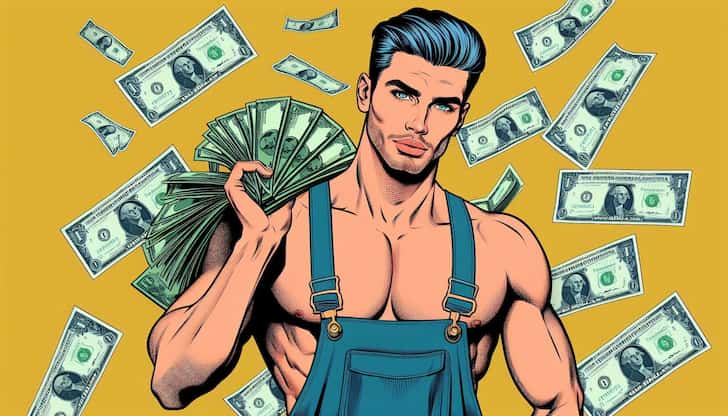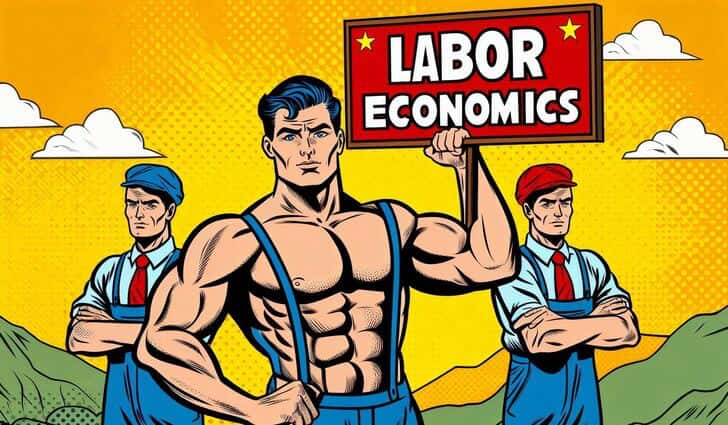Hyper-niche blogging has exploded across the digital landscape, transforming ordinary obsessions into monetized content machines. Content creators now build entire platforms around subjects so specific they border on the absurd - from vintage doorknob restoration to the psychology of people who collect rubber ducks. These micro-specializations promise both authenticity and profitability, yet they raise uncomfortable questions about the commodification of genuine interests. The line between passionate expertise and calculated marketing grows increasingly blurred as influencers discover that extreme specificity often translates to devoted followings and premium advertising rates.
The phenomenon forces us to examine what happens when every hobby becomes a hustle, when every interest transforms into an "influencer opportunity." Bloggers now dissect the minutiae of topics that would have remained private obsessions just decades ago, turning personal fascinations into public performances. The monetization of these ultra-specific interests creates a feedback loop where authenticity becomes performative, and genuine enthusiasm morphs into content strategy.

The Psychology Behind Extreme Specialization
Hyper-niche content taps into something deeply human - our desire to find others who share our most specific obsessions. When someone stumbles upon a blog dedicated to analyzing the typography choices in 1970s cereal boxes, they experience a fabulous sense of connection and validation. The blogger becomes both expert and kindred spirit, someone who "gets it" in a way that generalist content creators never could. This psychological hook explains why audiences develop almost cult-like devotion to creators who speak their incredibly specific language.
The parasocial relationships formed around these ultra-specific topics often feel more intimate than those built around broader subjects. Readers begin to see the blogger as the sole authority on their shared obsession, creating a dependency that extends beyond entertainment into identity validation. The blogger's opinions on whether Lucky Charms packaging peaked in 1982 or 1985 genuinely matter to people whose self-concept partially revolves around cereal nostalgia. This emotional investment transforms casual content consumption into something approaching religious devotion.
When Doorknob Collecting Becomes Content Gold
Consider the blogger who turned their collection of Victorian-era doorknobs into a six-figure business. They started photographing each piece with museum-quality precision, researching the social histories behind different brass alloys and handle shapes.
The blog attracted antique dealers, restoration enthusiasts, and people renovating historic homes who needed specific hardware matches. Within two years, they were selling courses on "doorknob authentication" and consulting for high-end interior designers seeking period-accurate details.
The Rise of Obscure Food Archaeology
Food bloggers have pushed specialization to remarkable extremes, with some focusing solely on recreating discontinued snack foods from the 1990s. These creators spend hundreds of dollars reverse-engineering the exact flavor profile of long-lost Fritos varieties or tracking down former food scientists willing to share trade secrets.
Their readers become subscribers not just for nostalgia, but for the genuine detective work involved in food archaeology. The blogs transform childhood memories into investigative journalism, with each successful recreation generating thousands of shares and comments from people desperate to taste their past.
The Monetization Machine
Converting obscure expertise into revenue streams requires creativity that often pushes ethical boundaries. Bloggers discover that their specialized knowledge creates multiple income opportunities - affiliate partnerships with niche suppliers, consulting services for businesses in adjacent industries, and premium content subscriptions for the most devoted followers.
The challenge lies in monetizing without compromising the authenticity that initially attracted readers. When doorknob expertise becomes a business, every post must balance genuine enthusiasm with revenue optimization.
The subscription model works particularly well for hyper-niche content because readers often view access as exclusive membership in a secret society. Paying $10 monthly for advanced doorknob authentication techniques feels less like a transaction and more like dues to join an elite club.
Content creators exploit this psychology by creating artificial scarcity around their specialized knowledge, suggesting that casual browsers will never achieve true understanding without premium access. The monetization strategy transforms genuine expertise into a gatekept commodity.

The Patreon Premium Tier Phenomenon
Successful niche bloggers often develop elaborate subscription hierarchies that would make medieval guild systems seem egalitarian. Basic subscribers receive weekly posts about general doorknob history, while top-tier patrons get personalized hardware authentication services and access to private Discord channels where serious collectors share rare finds.
The blogger positions themselves as both content creator and community gatekeeper, controlling access to information and social connections within their micro-niche. Monthly revenue from 500 dedicated subscribers often exceeds what generalist bloggers earn from millions of casual readers.
Consulting Contracts and Corporate Infiltration
The most successful hyper-niche bloggers eventually attract corporate attention from companies seeking authentic connections with specific consumer segments. A blogger known for rating vintage lunchbox designs suddenly receives offers from toy companies developing retro-themed products or Netflix producers researching period details for 1980s-set shows.
These consulting relationships generate substantial income but force bloggers to choose between maintaining editorial independence and accepting lucrative partnerships. The blogger's authentic voice becomes a valuable asset that corporations want to rent or acquire.
The Authenticity Trap
Maintaining genuine passion while building a business around hyper-specific interests creates psychological tensions that many creators never resolve. The need to produce consistent content transforms organic curiosity into scheduled obligation, forcing bloggers to manufacture enthusiasm on demand.
When doorknob research becomes your full-time job, the hobby that once provided relaxation becomes another source of professional stress. The monetization process often kills the genuine interest that made the content compelling in the first place.
Audiences develop sophisticated detectors for performative enthusiasm, particularly within niche subjects where true expertise becomes obvious. Long-time readers notice when posts shift from excited discovery to formulaic content production, when research becomes shallow, or when commercial partnerships start influencing editorial choices.
The blogger's credibility depends entirely on maintaining the illusion that money hasn't corrupted their authentic passion. This creates a constant performance pressure that few creators discuss publicly.
The Burnout of Manufactured Obsession
Several prominent niche bloggers have documented their struggles with turning genuine interests into content mills. One creator who built a following around vintage calculator restoration reported feeling physically ill whenever they saw old electronics, having transformed their relaxing hobby into a source of anxiety and deadline pressure.
The requirement to generate weekly content about increasingly obscure calculator models forced them to manufacture enthusiasm for devices they no longer found interesting. Their authentic passion became a prison of their own making.
When Corporate Partnerships Compromise Editorial Voice
The temptation to accept lucrative brand partnerships often corrupts the editorial independence that made niche blogs trustworthy. A blogger known for honest reviews of specialty coffee equipment might accept a sponsorship deal that requires promoting inferior products to their devoted readers.
The financial security feels necessary for continuing their blogging career, but the compromise damages the authenticity that built their following. Readers who trusted their expertise feel betrayed when commercial interests obviously influence content recommendations.
The Ethical Implications
The commercialization of hyper-niche interests raises questions about exploitation that extend beyond simple concerns about selling out. When bloggers monetize their specialized knowledge, they often extract value from the unpaid enthusiasm of their readers who contribute research, corrections, and additional expertise through comments and emails.
The blogger receives all the financial rewards while their readers provide free labor in the form of crowd-sourced research and community moderation. This creates an imbalanced relationship where genuine enthusiasm gets converted into profit for a single individual.
The educational value of specialized blogs becomes complicated when commercial interests influence information sharing. Readers who rely on niche bloggers for expertise may receive biased or incomplete information when affiliate partnerships or sponsorship deals affect editorial choices. The blogger's role shifts from educator to sales representative, but readers often don't recognize this transition until they've made purchasing decisions based on compromised recommendations. The ethical responsibility of monetized expertise requires transparency that many creators avoid.

The Labor Economics of Free Community Building
Successful niche bloggers often develop thriving comment sections and forums where readers share knowledge, debate details, and provide emotional support around shared obsessions. The blogger benefits from this free community labor while typically providing minimal compensation or recognition to contributors who help build their platform's value.
Long-time community members who provide expert corrections or additional research rarely receive any share of the advertising revenue or subscription income their participation helps generate. The blogger extracts value from genuine community enthusiasm while positioning themselves as the sole authority deserving monetary compensation.
Information Gatekeeping and Artificial Scarcity
Some hyper-niche bloggers create artificial information scarcity by withholding basic knowledge behind paywalls or limiting access to specialized resources. They might discover a valuable database of historical information but restrict access to paying subscribers rather than making it freely available to other researchers.
This gatekeeping strategy generates revenue but potentially hinders broader knowledge sharing within specialized fields. The blogger's commercial interests directly conflict with the academic or hobbyist principle of open information exchange.
The Platform Dependency Problem
Building a business around hyper-specific content creates dangerous dependencies on social media algorithms and platform policies that creators rarely acknowledge. A blogger whose entire income depends on YouTube recommendations for their vintage doorknob videos faces financial ruin if the algorithm stops promoting their content to interested viewers.
Platform changes that prioritize different content types or advertising shifts that affect niche markets expose these creators to risks they often don't anticipate. The specialization that creates their competitive edge also makes them extremely vulnerable to external factors beyond their control.
The narrow focus that defines hyper-niche content also limits growth opportunities and makes creators vulnerable to market changes. A blogger who built their entire platform around analyzing 1990s fast food marketing faces challenges when nostalgia trends shift toward different decades or when their specific area of expertise loses cultural relevance.
The deep specialization that initially attracted devoted followers becomes a limitation that prevents adaptation to changing interests or market conditions. These creators often find themselves trapped by their own expertise.
The Algorithm Apocalypse Scenario
Multiple niche content creators have experienced devastating traffic losses when platform algorithms changed their content promotion strategies. A blogger who spent five years building a following around antique thimble collecting watched their monthly views drop 90% after YouTube updated its recommendation system to favor shorter, more mainstream content.
Their specialized knowledge became worthless overnight because the platform that connected them to their niche remained inaccessible. The creator had no alternative distribution method for reaching people interested in thimble collecting.
Market Saturation and Copycat Competition
Success in hyper-niche blogging inevitably attracts imitators who dilute the original creator's market position. Once doorknob restoration becomes profitable, dozens of newcomers enter the space with similar content but lower prices and flashier presentation styles.
The original blogger loses their monopoly on specialized knowledge while facing increased competition for the limited pool of people interested in Victorian hardware. The very success that validates their niche creates the conditions for their eventual displacement.
The Sustainability Question
Long-term viability of hyper-niche blogging depends on factors that most creators never consider during their initial enthusiasm. The pool of people genuinely interested in any ultra-specific topic remains limited, creating natural ceilings for growth that become apparent only after years of content creation.
A blogger covering vintage lunch box designs will eventually exhaust both available content topics and potential new readers who care about 1970s thermos technology. The specialization that creates initial success becomes the limitation that prevents sustainable growth.
The psychological toll of maintaining enthusiasm for increasingly narrow subjects often proves more challenging than creators anticipate. Turning genuine curiosity into content obligation transforms relaxing hobbies into sources of professional pressure and creative burnout.
Many successful niche bloggers report feeling trapped by their expertise, unable to explore new interests without disappointing readers who expect continued focus on their established specialty. The authenticity that made their content compelling becomes a performance requirement that few creators sustain long-term.
The Natural Lifecycle of Niche Obsessions
Most hyper-specialized blogs follow predictable patterns of growth, peak engagement, and eventual decline that mirror the creator's personal relationship with their subject matter. The initial excitement of discovery and sharing generates the most compelling content, while later posts often feel forced or repetitive as the creator exhausts novel angles for discussion.
Readers sense this shift in enthusiasm and gradually migrate to newer creators who exhibit the fresh passion the original blogger has lost. The lifecycle rarely exceeds five years before either the creator burns out or the audience moves on.
The Retirement Problem
Creators who build their entire professional identity around ultra-specific expertise face challenges when they want to explore new interests or retire from content creation. Their personal brand becomes so strongly associated with their niche that branching out risks alienating existing followers while failing to attract new ones.
A doorknob expert who develops interest in vintage window hardware finds that their established reputation works against them in the new subject area. The hyperspecialization that created their initial success becomes a professional prison that limits future opportunities.
The Future of Microscopic Markets
The evolution of hyper-niche blogging reflects broader changes in how specialized knowledge gets monetized in the digital economy. As mainstream markets become increasingly saturated with generic content, creators discover that extreme specialization offers competitive advantages that generalist approaches cannot match.
The trend toward microscopic markets rewards deep expertise over broad appeal, creating opportunities for people with obsessive knowledge about incredibly specific topics. This shift validates interests and hobbies that previous generations might have kept private.
Technology enables these microscopic markets by connecting geographically dispersed people who share extremely specific interests. The blogger obsessed with 1970s doorknobs finds their tribe scattered across continents, united only by their shared fascination with Victorian brass hardware. Digital platforms make these connections possible while monetization tools transform private obsessions into viable businesses. The infrastructure supporting hyper-niche content creation continues evolving in ways that make increasingly specialized markets economically viable.
The ethical implications of this trend extend beyond individual creator concerns to broader questions about information commodification and knowledge access. As more specialized expertise moves behind paywalls, the free exchange of information that once characterized hobby communities becomes commercialized.
The democratization of publishing enables more voices to share specialized knowledge, but monetization pressures often compromise the open sharing ethos that built these interest areas initially. The balance between sustainable creator income and accessible information remains unresolved.
Hyper-niche blogging represents both the best and worst aspects of creator economy monetization. At its best, it validates obscure interests, connects like-minded individuals, and provides sustainable income for people with specialized knowledge. At its worst, it commodifies authentic passion, creates artificial information scarcity, and exploits the free labor of genuine enthusiasts.
The sustainability of this model depends largely on individual creators' ability to maintain authenticity while building viable businesses around their expertise. The most successful practitioners seem to be those who never lose sight of the genuine enthusiasm that made their knowledge worth sharing in the first place, even as they navigate the complex ethics of monetizing their obsessions.

